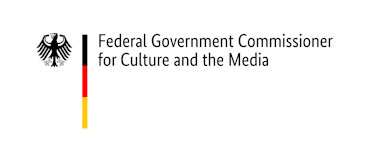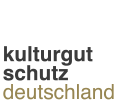Return mechanisms
Cultural objects that have been introduced into Germany unlawfully and in breach of foreign export regulations must be returned.
Based on the provisions of EU law concerning the return of unlawfully removed cultural objects (Directive 2014/60/EU, predecessor adopted in 1993) and as a signatory state to the 1970 UNESCO Convention on the Means of Prohibiting and Preventing the Illicit Import, Export and Transfer of Ownership of Cultural Property, the Federal Republic of Germany is obliged to include provisions in its national law stating that protected cultural objects from other EU Member States or other signatory states to the UNESCO Convention must be returned to these latter if they have been removed unlawfully and introduced into Germany. The Hague Convention also establishes a return mechanism that applies in the event of armed conflicts. The German Act on the Protection of Cultural Property (Kulturgutschutzgesetz, KGSG) uniformly regulates all of the requirements and procedures relating to return proceedings.
Since return proceedings are initiated on the basis of the legal protection also conferred upon the relevant cultural object in its country of origin, such proceedings cannot be initiated for counterfeits or for copies or replicas that are not eligible for protection. Prior to the initiation of proceedings, checks must therefore always be carried out to determine whether the object in question is a protected original from the relevant country of origin.
When return proceedings are initiated by a foreign country against an owner in Germany, reference dates apply in respect of the date on which the object was unlawfully transported out of the country in question; based on the mandatory provisions of constitutional and international law, any retroactive effect before these reference dates is excluded.
Return proceedings initiated by an EU Member State
The provisions of the Act on the Protection of Cultural Property concerning returns of cultural objects between EU Member States (Section 50 KGSG) are based on the provisions of Directive 2014/60/EU. In particular, this includes a significant expansion of scope in comparison to the predecessor regulations (Directive 93/7/EEC) to include cultural property that is protected by a Member State. Longer deadlines are also granted for the initiation of return proceedings (three years instead of one year).
Pursuant to Section 50 KGSG, at the request of an EU Member State, cultural property shall be returned if it was removed unlawfully from this Member State after 31 December 1992 (without a mandatory export licence, for example) and if it has been classified, prior to or after its removal, as protected national cultural property of artistic, historical or archaeological value.
The Directive specifies a single reference date that applies throughout the EU, on the basis of the 1993 Directive that served as a predecessor. It applies regardless of the date on which the respective country acceded to the EU.
Return proceedings initiated by a UNESCO signatory state
In order for return proceedings to be initiated by a signatory state to the UNESCO Convention (Section 52 KGSG), the object in question must qualify as protected cultural property under the law of the relevant signatory state (or fall under a relevant category, e.g. “archaeological cultural item, older than 100 years”) and must have been exported from the signatory state in breach of the applicable legislative provisions after 26 April 2007 (the date on which the UNESCO Convention gained binding effect under international law in the Federal Republic of Germany).
As explained in a report by the Federal Government on the protection of cultural property published in 2013 (available in German), the “list principle” that applied under the 2007 Act on the Protection of Cultural Property (according to which the individual cultural object in question needed to be listed in a published register) did not prove useful in practice. This requirement does not therefore appear in the provisions of the Act on the Protection of Cultural Property concerning return proceedings, which means that the different protection systems that exist in other countries are granted equal status.
If the export date is in doubt (“cannot be clarified”, Section 52 (2) KGSG), a rebuttable presumption exists that the object was exported after 26 April 2007, and that return proceedings can, in principle, be initiated; this is intended to increase the number of return proceedings brought before the courts, particularly in respect of illicit excavations.
Cultural objects transported unlawfully out of the relevant country of origin before this reference date do not fall under the scope of any provisions of international law concerning return proceedings. Yet this does not, under any circumstances, mean that they are automatically “legalized”, as is sometimes wrongly assumed, since this status under international law does not preclude the possibility of initiating return proceedings under civil law. Moreover, Germany prohibits any dealing in cultural property that has been illegally excavated, stolen or otherwise lost (Section 40 KGSG). The due diligence requirements applicable to the placement on the market of cultural property (Section 41 et seqq. KGSG) are intended to reinforce this prohibition, and they apply if a cultural object is to be placed on the market in Germany (i.e. in particular offered for sale) after the entry into force of the Act on the Protection of Cultural Property on 6 August 2017, regardless of the reference dates that apply in respect of return proceedings.
Procedures and compensation in connection with returns
In the event that return negotiations fail, return proceedings must be brought against the owner before Germany’s administrative courts, regardless of whether they are initiated by a UNESCO signatory state or an EU Member State (Section 49 KGSG). If the individual has acquired ownership of the cultural object and could not reasonably have been expected to identify its unlawful origin at the time of acquisition despite exercising the necessary due diligence, the owner may be paid compensation after returning the object; the amount of this compensation will take into account any expenses incurred by the owner in connection with the object’s purchase and preservation (Sections 66 and 67 KGSG).
Details of the prerequisites and procedure for the initiation of return proceedings can be found in the Guidance on the Act on the Protection of Cultural Property (from page 219 onwards, available in German).
A list of signatory states to the UNESCO Convention can be accessed via the following links:

